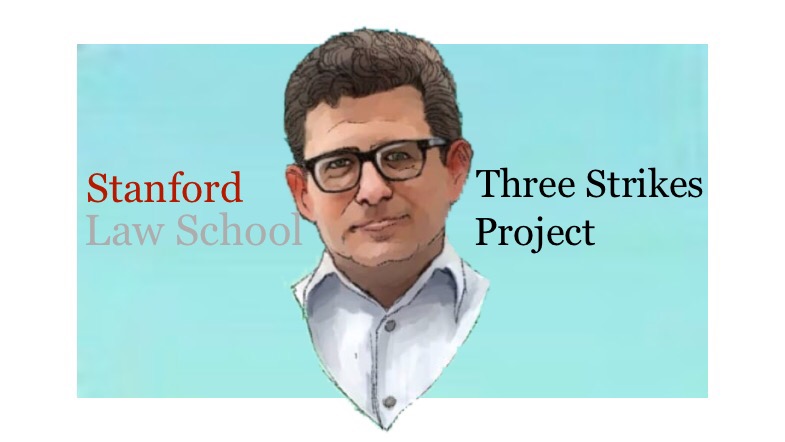CRIME STORY has received permission to re-print Michael Romano‘s newsletters from Stanford Law School’s Three Strikes Project whose mission is to reverse the most unjust criminal sentences. Romano and his colleague Susan Champion were interviewed by Amanda Knox for CRIME STORY and you can find the podcast and the transcript of that interview here. You can find a story about Romano’s participation in a U.S. Congressional field hearing on criminal justice reform here.
Sometimes our losses help us refocus on priorities and the tragedies so many of our clients live with.
Last week, a Superior Court judge in Los Angeles ruled that our longtime client Alejandra Nolkemper was ineligible for sentence reconsideration under Proposition 47. Alejandra has served over 20 years of a life sentence for breaking a church window. Nothing was stolen. No one was injured. Months later, she turned herself in to police, represented herself in court, and 10 days later pled guilty to a life sentence under the Three Strikes law.
Alejandra has had a hard time in prison. She is a transgender woman housed in a men’s prison and has been victim of the worst kind of violence and abuse. To protect herself, she intentionally commits prison rule violations that she knows will send her to segregated housing and solitary confinement—where she has spent most of her decades behind bars. This has deprived her of connection with others and most rehabilitative programming. We’ve been her only visitors and contacts to the outside world for the vast majority of her incarceration. (Visiting is now prohibited in California prisons due to the pandemic.)
Her court case boils down to technical issues about new statutory language enacted by Proposition 47 and a dispute about the time of day Alejandra committed her crime. At the time, her case received press coverage when police called her a satan worshiper. In truth, she was a homeless, addicted, trans woman, scraping by and active in the LA punk rock scene in the 1980’s and 90’s. Today, she passes the time drawing, reading a Spanish-language Bible (learning the language as she goes), and attending enhanced mental health treatment sessions.
During our investigation of her case, we met the victim of her crime, the church pastor, who has no memory of the event. Coincidentally, the church caters to the LGBQT+ community. He now fully supports Alejandra’s case and wants to provide help and community support if she is ever released.
In the meantime, one of our current students is already drafting opening pleadings to appeal last week’s decision by the Superior Court. We are also exploring other avenues for relief, but they are all longs-shots. Alejandra knows all of this. On a phone call with her last week, she responded to the news with a resiliency that is sadly common among many of our clients: the ability to absorb rejection and disappointment.
One positive note for Alejandra is that Governor Newsom recently signed into law SB 132 (authored by Sen. Scott Weiner), which will allow California inmates to be housed in a prison facility that corresponds to their preferred gender identity. The new law takes effect in January, and we will help Alejandra realize one of her greatest wishes—to be housed with other women, where she will be accepted and safe.
Of course, will also continue to work on the ultimate goal of winning her return to free society, where she belongs.
Thank you all for your continued support.
– Mike


